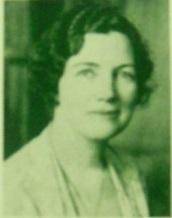Planning worship?
Check out our sister site, ZeteoSearch.org,
for 20+ additional resources related to your search.
- |
User Links
Search Results
Heavenly Union
Appears in 73 hymnals First Line: Come, saints and sinners, hear me tell Used With Tune: [Come, saints and sinners, hear me tell]
Heavenly Union
HEAVENLY UNION
Appears in 4 hymnals Composer and/or Arranger: Annabel Morris Buchanan Tune Sources: Traditional folk-hymn Tune Key: G Major Incipit: 11355 53216 66153 Used With Text: Come, saints and sinners, hear me tell
HEAVENLY UNION
EXPERIENCE
Appears in 2 hymnals Tune Key: d minor Incipit: 55112 34551 23115 Used With Text: Come, saints and sinners, hear me tell
EXPERIENCE
[Come, saints and sinners, hear me tell]
Appears in 2 hymnals Composer and/or Arranger: J. J. Hood Incipit: 51356 54321 66615 Used With Text: Heavenly Union
[Come, saints and sinners, hear me tell]
Come, saints and sinners (The heavenly union)
Author: Charles A. Tindley Hymnal: Beams of Heaven #32 (2006) First Line: Come, saints and sinners hear me tell Languages: English Tune Title: [Come, saints and sinners hear me tell]
Come, saints and sinners (The heavenly union)
Come Saints and Sinners
Hymnal: Salvation Army Music #92 (1880) First Line: Come, saints and sinners, hear me tell Languages: English Tune Title: [Come, saints and sinners, hear me tell]
Come Saints and Sinners
Heavenly Union
Hymnal: Showers of Blessing #160 (1888) First Line: Come, saints and sinners, hear me tell Tune Title: [Come, saints and sinners, hear me tell]
Heavenly Union
Charles Albert Tindley

1851 - 1933 Person Name: Charles A. Tindley Author of "Come, saints and sinners (The heavenly union)" in Beams of Heaven Charles Albert Tindley was born in Berlin, Maryland, July 7, 1851; son of Charles and Hester Tindley. His father was a slave, and his mother was free. Hester died when he was very young; he was taken in my his mother’s sister Caroline Miller Robbins in order to keep his freedom. It seems that he was expected to work to help the family. In his Book of Sermons (1932), he speaks of being “hired out” as a young boy, “wherever father could place me.” He married Daisy Henry when he was seventeen. Together they had eight children, some of whom would later assist him with the publication of his hymns.
Tindley was largely self-taught throughout his lifetime. He learned to read mostly on his own. After he and Daisy moved to Philadelphia in 1875, he took correspondence courses toward becoming a Methodist minister. He did this while working as a sexton (building caretaker) for the East Bainbridge Street Church. Beginning in 1885, he was appointed by the local bishop to serve two or three-year terms at a series of churches, until coming full circle to become pastor at East Bainbridge in 1902. Under his leadership, the church grew rapidly. They relocated in 1904 to the East Calvary Methodist Episcopal Church, then again in 1924 to the new Tindley Temple, where the membership roll blossomed to about ten thousand.
Tindley was known for being a captivating preacher, and for also taking an active role in the betterment of the people in his community. His songs were an outgrowth of his preaching ministry, often introduced during his sermons. Tindley was able to draw people of multiple races to his church ministry; likewise, his songs have been adopted and proliferated by white and black churches alike.
The songs of Charles Tindley were published cumulatively in two editions of Soul Echoes (1905, 1909) and six editions of New Songs of Paradise (1916-1941).
His wife Daisy died in 1924, before the completion of the Tindley Temple. He remarried in 1927 to Jenny Cotton. Charles A. Tindley died July 26, 1933.
Charles Albert Tindley
John J. Hood
b. 1847 Person Name: J. J. Hood Arranger of "[Come, saints and sinners, hear me tell]" in Showers of Blessing Born: 1847, Scotland.
Died: After 1929 (he was in the 1930 census).
Hood ran a Gospel music publishing business in Philadelphia, Pennsylvania, from as early as 1875 to at least 1913.
--www.hymntime.com/tch
John J. Hood
Annabel Morris Buchanan

1888 - 1983 Arranger of "HEAVENLY UNION" in Folk Hymns of America Born: October 22, 1888, Groesbeck, Texas. Died: January 6, 1983, Paducah, Kentucky. Buried: Round Hill Cemetery, Marion, Virginia.
Daughter of William Caruthers Morris and Anna Virginia Foster, and wife of John Preston Buchanan, Anna received her musical training at the Landon Conservatory of Music, Dallas, Texas (to which she received a scholarship at age 15); the Guilmant Organ School, New York; and studying with Emil Liebling, William Carl, and Cornelius Rybner, among others. She taught music in Texas; at Halsell College, Oklahoma (1907-08); and at Stonewall Jackson College, Abingdon, Virginia (1909-12). In 1912, she married John Preston Buchanan, a lawyer, writer, and senator, from Marion, Virginia; they moved to their home, Roseacre, in Marion, where they had four children.
Buchanan served as president of the Virginia Federation of Music Clubs in 1927, and helped organize the first Virginia State Choral Festival in 1928, and White Top Folk Festivals (1931-41). After her husband’s death in 1937, she sold Roseacre and moved to Richmond, Virginia, with her two youngest children. She taught music theory and composition and folk music at the University of Richmond (1939-40); during the summers, at the New England Music Camp, Lake Messalonskee, Oakland, Maine (1938-40); and at the Huckleberry Mountain Artists Colony near Hendersonville, North Carolina, in 1941. She later moved to Harrisonburg, Virginia, and taught at Madison College (1944-48). In 1951, she moved to Paducah, Kentucky. She later became the archivist of the folk music collecting project of the National Federation of Music Clubs, serving until 1963. Buchanan’s works include:
Folk-Hymns of America (New York: J. Fischer, 1938)
American Folk Music, 1939
Sources:
Findagrave, accessed 15 Nov 2016
Hughes, pp. 329-30
Hustad, p. 213
© The Cyber Hymnal™. Used by permission. (www.hymntime.com
Annabel Morris Buchanan


 My Starred Hymns
My Starred Hymns

